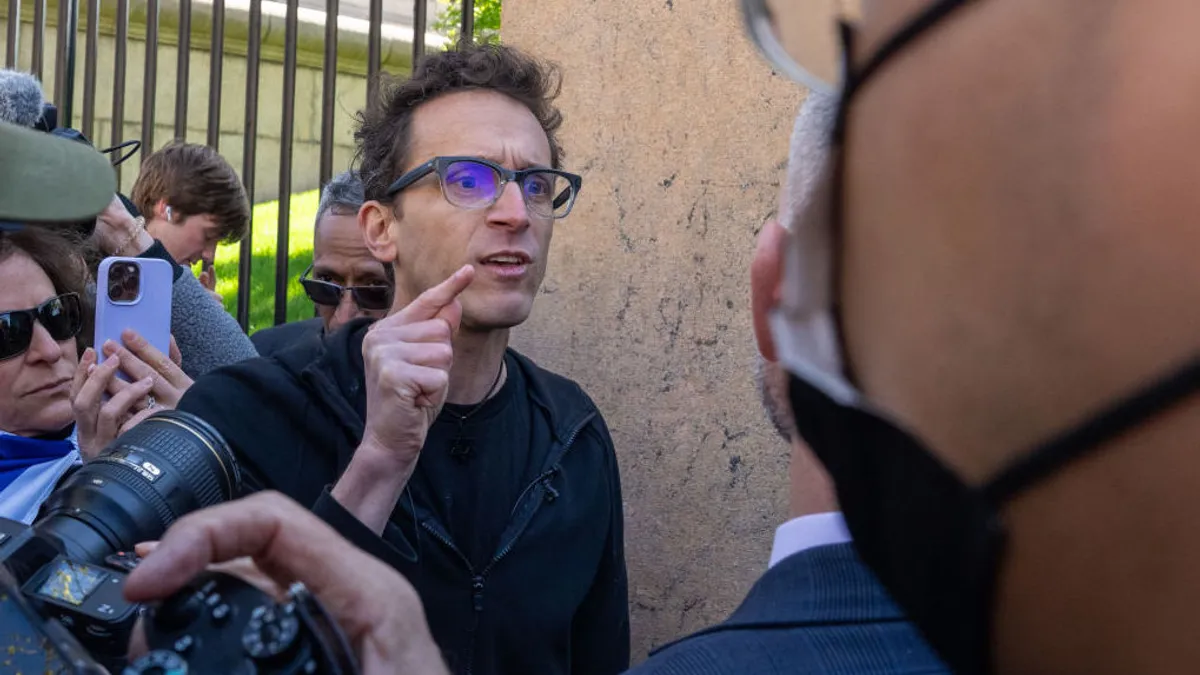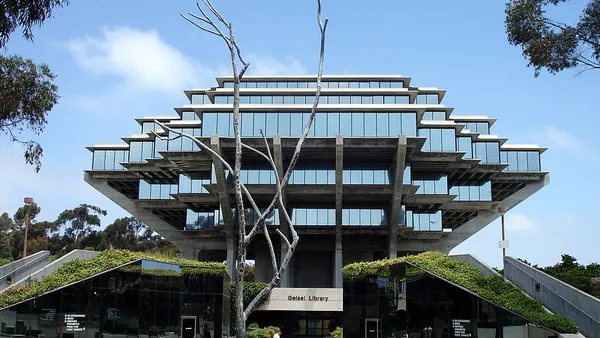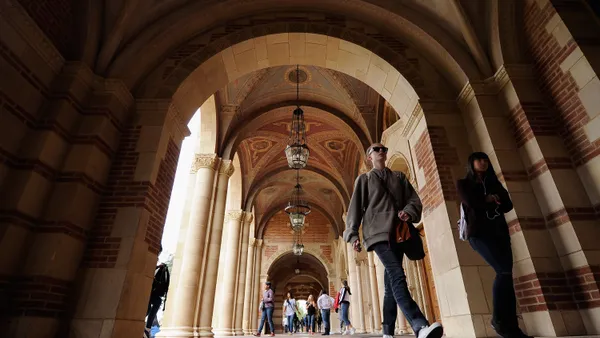Dive Brief:
- Columbia University has temporarily revoked a polarizing pro-Israel professor’s access to its New York campus over violations of the university’s harassment and intimidation policies, a spokesperson confirmed Wednesday.
- The ban comes after Shai Davidai, an Israeli citizen and vocal critic of pro-Palestinian demonstrators on the Ivy League institution’s campus, "repeatedly harassed and intimidated University employees" on Oct. 7, when dueling protests were held at Columbia. Davidai, who is not teaching this semester, has not been suspended and his status as a faculty member, including compensation, has not changed.
- Columbia will lift Davidai's campus ban if he completes training on the university’s employee conduct policies, the spokesperson said. In a now-deleted social media post, the professor suggested he would respond to the restriction with legal action. He did not immediately respond to emailed requests for comment Wednesday.
Dive Insight:
Columbia has often been a flashpoint of campus tensions in response to the Israel-Hamas war.
The university switched to remote learning for the last chunk of the spring semester amid rampant campus demonstrations and called on police to arrest protesters on its grounds for the first time in decades. Just prior to the fall semester, Minouche Shafik resigned as Columbia's president following months of condemnation from both pro-Palestinian protesters and their critics.
On Oct. 7, the one-year anniversary of the Hamas attack on Israel, Columbia saw two neighboring protests on its campus: one by pro-Palestinian demonstrators and the other by supporters of Israel. People on the scene described the day as tense but peaceful.
Davidai has vocally criticized Columbia’s administration and pro-Palestinian protesters over the past year, accusing participants of antisemitism. In a Tuesday social media post, Davidai described the Oct. 7 pro-Palestinian rally as a "pro-Hamas riot.”
The professor shared extensive video footage on social media showing him during the demonstrations confronting students, faculty and university officials, including Columbia's Chief Operating Officer Cas Holloway and public safety official Bobby Lau.
"I am not going to let you rest until they let us rest," Davidai said to Holloway while following him, referring to the pro-Palestinian protesters.
Davidai said he found out that his campus access had been temporarily revoked over his conduct that day.
The university has consistently respected Davidai's right to free expression, a Columbia spokesperson said Wednesday.
"His freedom of speech has not been limited and is not being limited now," the spokesperson said. "Columbia, however, does not tolerate threats of intimidation, harassment, or other threatening behavior by its employees."
Respect for others is a central principle at Columbia, according to its ethical conduct policy. "Two primary expectations that flow from this principle are to act with civility and to refrain from abuse of power," it reads.
In a three-minute video posted to social media Tuesday, which has now been deleted, Davidai said he was suspended because he was not afraid to stand up to pro-Palestinian protesters, which he described as a “hateful mob.”
He also singled out Holloway, describing the official with repeated expletives.
Holloway, Davidai alleged, had failed to respond to concerns about pro-Palestinian demonstrators for over a year.
"You know why?" he said. "Because Cas Holloway is not Jewish. Because Cas Holloway's kids are not Jewish."
At one point, Davidai addressed Holloway directly.
"I'm not going anywhere," he said. "And you? You can go [expletive] yourself until we meet in court."
Over the past year, Davidai has also faced repeated allegations that he has harassed pro-Palestinian students. Columbia did not address those accusations this week.
In April, Columbia's chapter of Students for Justice in Palestine launched a petition calling for him to be fired that garnered over 13,000 signatures. Later that month, the institution temporarily deactivated Davidai’s university ID and denied his entry to campus when he attempted to move a pro-Israel event he organized into the campus's pro-Palestinian encampment, against administration guidance to hold it in a designated counterprotest area.













